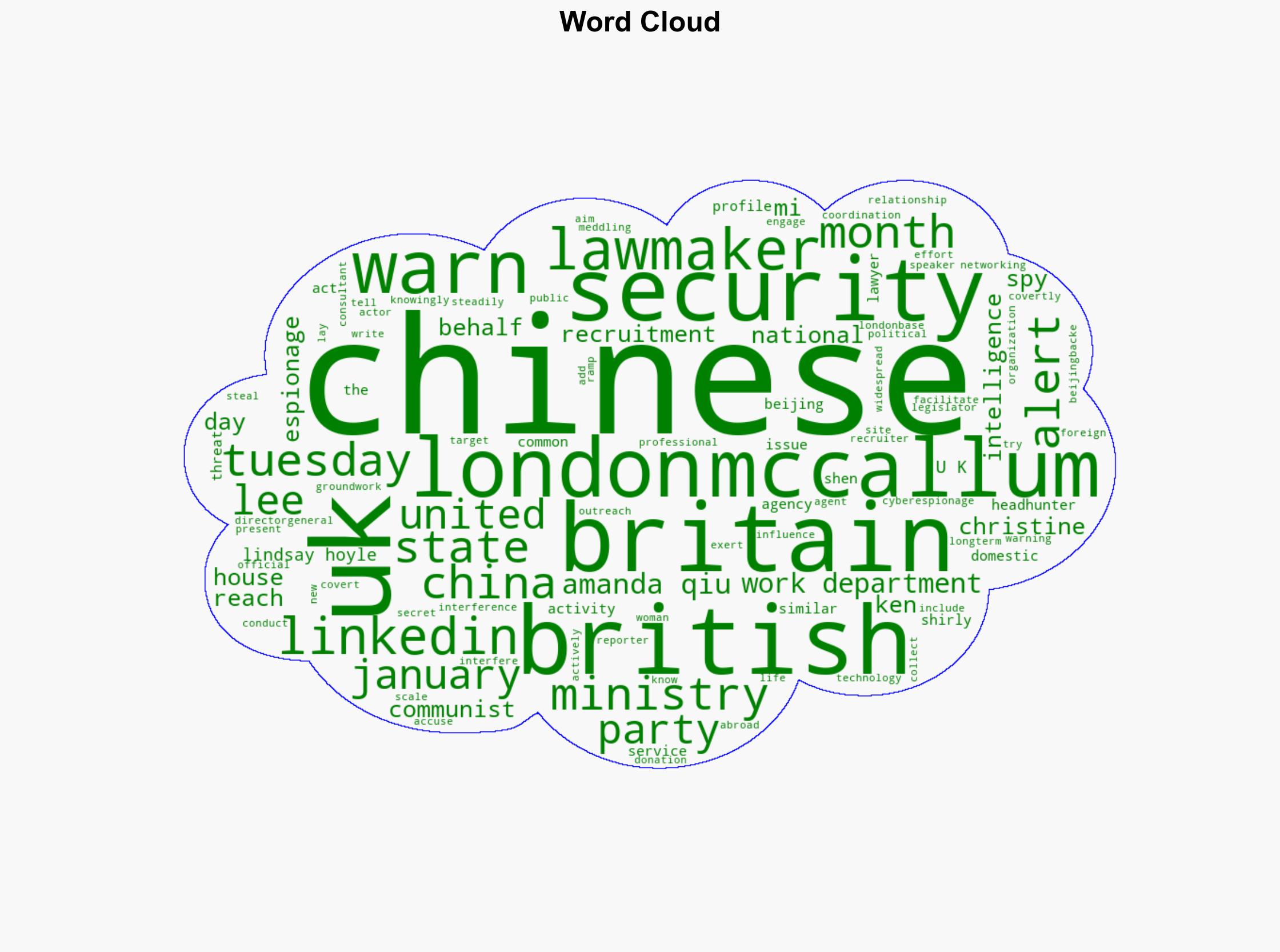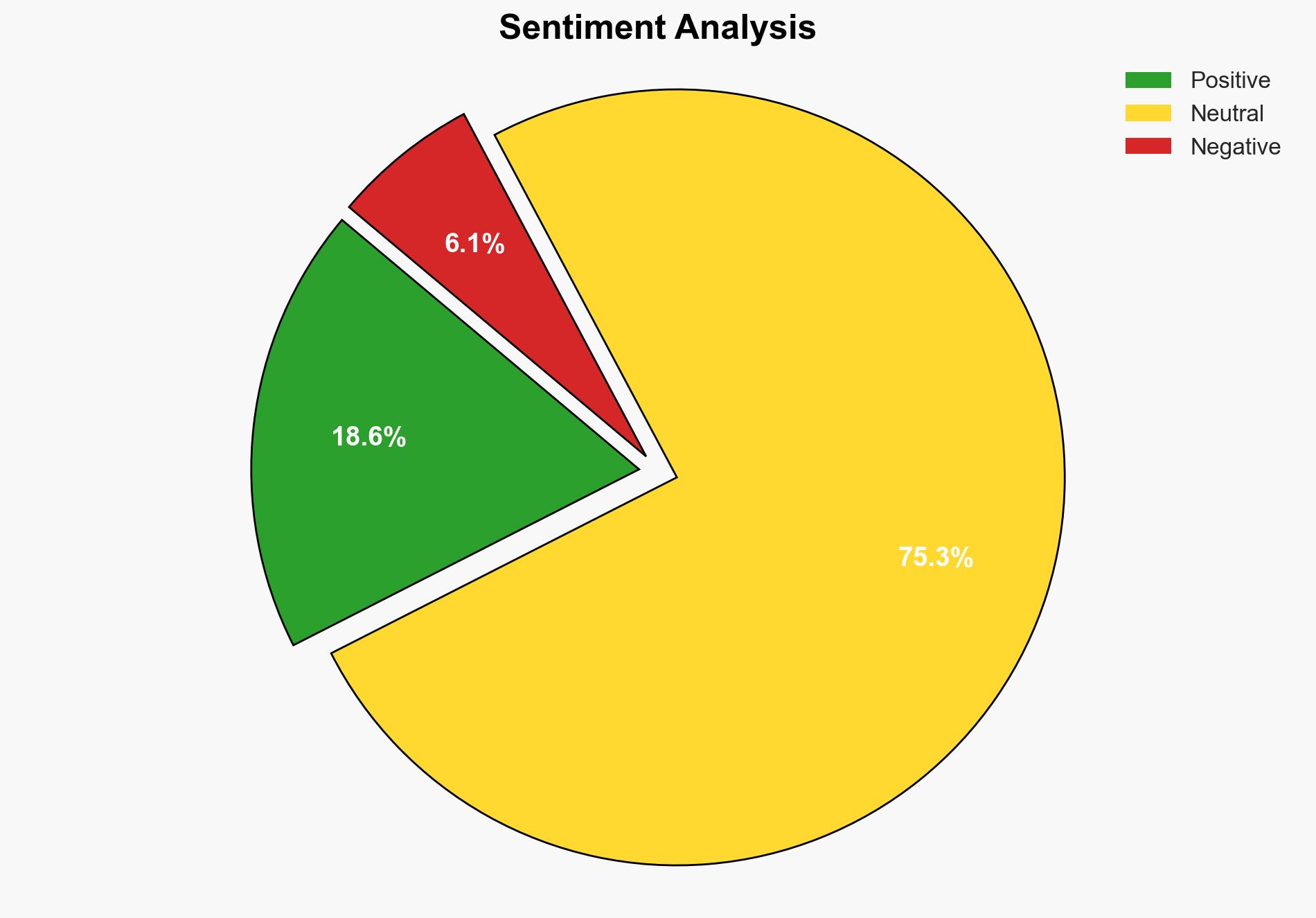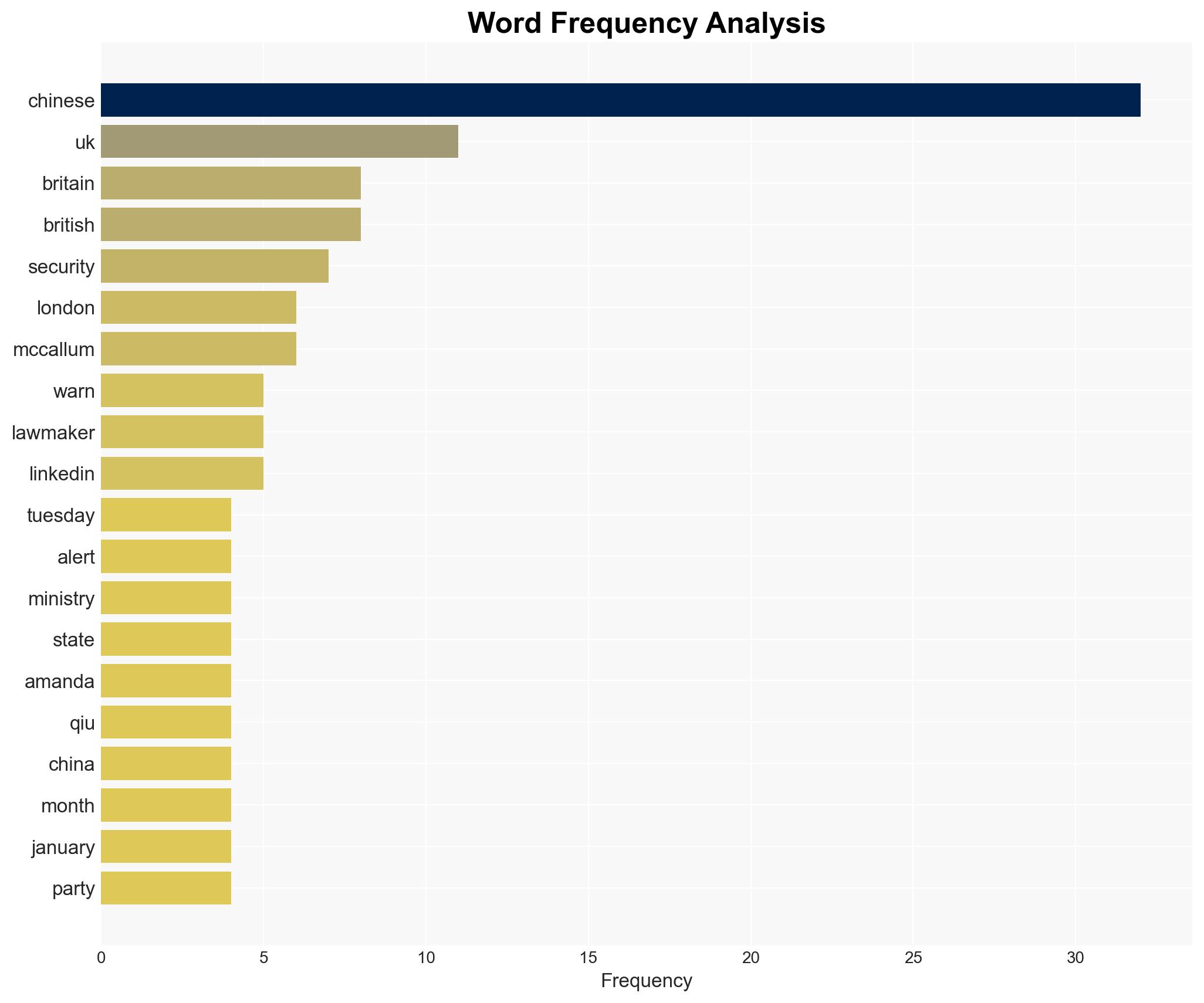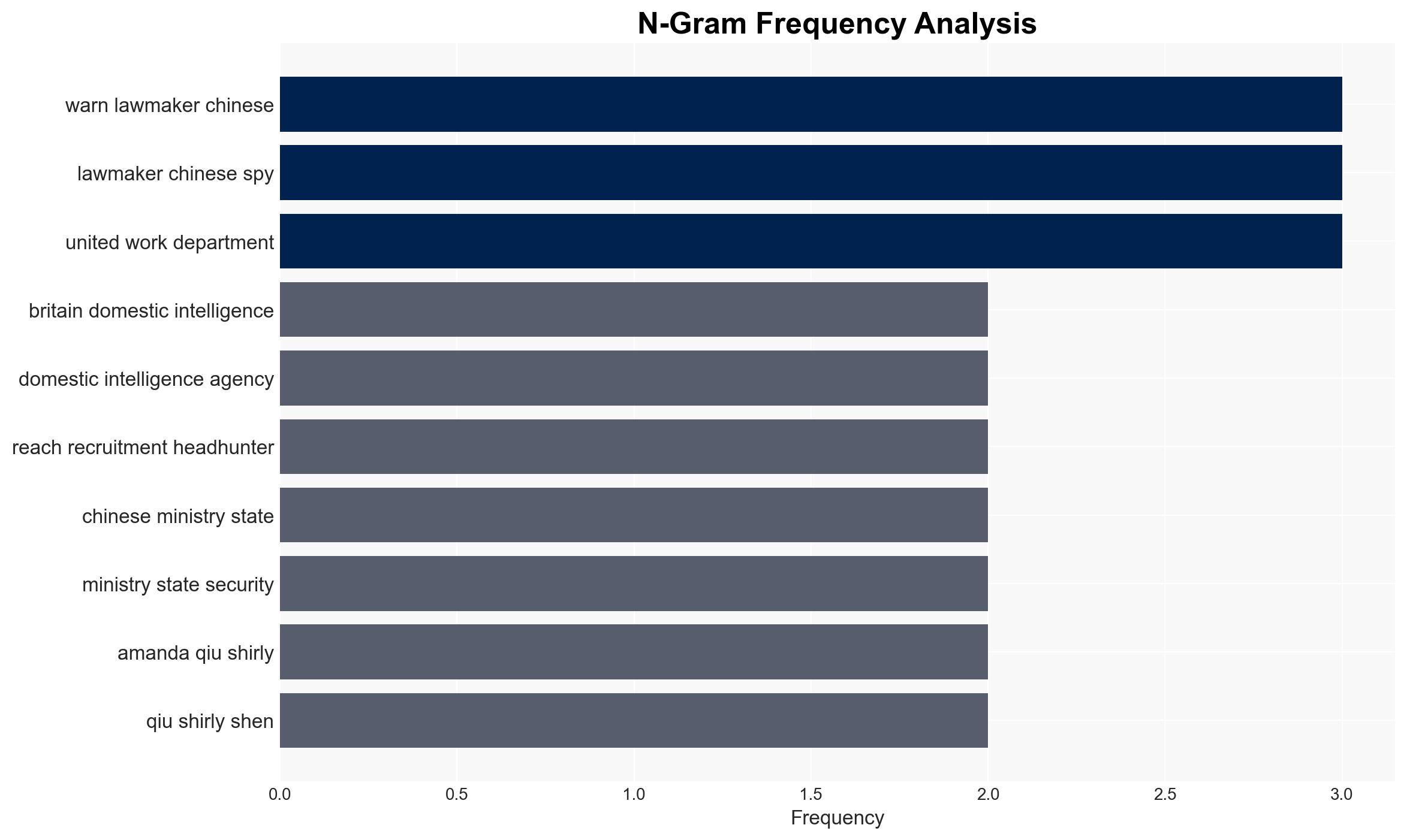UK warns lawmakers that Chinese spies are trying to reach them via LinkedIn – ABC News
Published on: 2025-11-18
AI-powered OSINT brief from verified open sources. Automated NLP signal extraction with human verification. See our Methodology and Why WorldWideWatchers.
Intelligence Report:
1. BLUF (Bottom Line Up Front)
There is a high confidence that Chinese intelligence operations are actively targeting UK lawmakers through LinkedIn to establish long-term influence and intelligence-gathering channels. The most supported hypothesis is that these activities are part of a broader strategic effort by China to infiltrate and influence UK political and economic systems. Recommended actions include enhancing cybersecurity measures, increasing awareness among lawmakers, and strengthening counterintelligence operations.
2. Competing Hypotheses
Hypothesis 1: Chinese intelligence is using LinkedIn to recruit UK lawmakers and their aides as part of a long-term strategy to influence UK policy and gather intelligence.
Hypothesis 2: The outreach efforts on LinkedIn are primarily aimed at gathering non-sensitive professional information and establishing benign professional networks, with no immediate intent to influence or gather critical intelligence.
Hypothesis 1 is more likely due to the historical context of Chinese espionage activities and the specific targeting of lawmakers, which suggests a strategic rather than a benign intent.
3. Key Assumptions and Red Flags
Assumptions: It is assumed that LinkedIn is a primary platform for these activities due to its professional networking nature. It is also assumed that the individuals named (Amanda Qiu and Shirly Shen) are acting on behalf of Chinese intelligence.
Red Flags: The use of LinkedIn for espionage is a red flag, as it suggests a shift towards exploiting digital platforms for intelligence purposes. The naming of specific individuals could indicate a deliberate attempt to mislead or distract from other operatives.
4. Implications and Strategic Risks
The implications of successful Chinese infiltration could include compromised UK policy decisions, economic espionage, and increased political influence by China. There is a risk of escalation in cyber operations and retaliatory measures by the UK, potentially leading to heightened tensions between the two nations. The informational threat could also undermine public trust in UK institutions.
5. Recommendations and Outlook
- Enhance cybersecurity protocols and training for lawmakers and their staff to recognize and counteract espionage attempts.
- Increase intelligence-sharing and collaboration with international partners to identify and mitigate similar threats.
- Best Case: Increased awareness and countermeasures lead to a reduction in successful espionage activities.
- Worst Case: Successful infiltration results in significant political and economic damage to the UK.
- Most-likely Scenario: Continued attempts by Chinese operatives with varying degrees of success, necessitating ongoing vigilance and adaptation of counterintelligence strategies.
6. Key Individuals and Entities
Amanda Qiu, Shirly Shen, Ken McCallum, Christine Lee
7. Thematic Tags
Structured Analytic Techniques Applied
- Cognitive Bias Stress Test: Expose and correct potential biases in assessments through red-teaming and structured challenge.
- Bayesian Scenario Modeling: Use probabilistic forecasting for conflict trajectories or escalation likelihood.
- Network Influence Mapping: Map influence relationships to assess actor impact.
- Narrative Pattern Analysis: Deconstruct and track propaganda or influence narratives.
Explore more:
National Security Threats Briefs ·
Daily Summary ·
Support us





